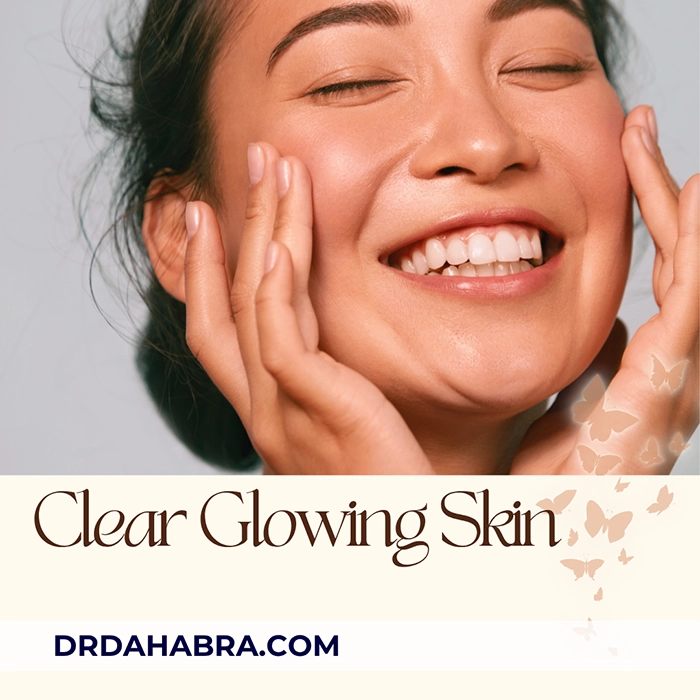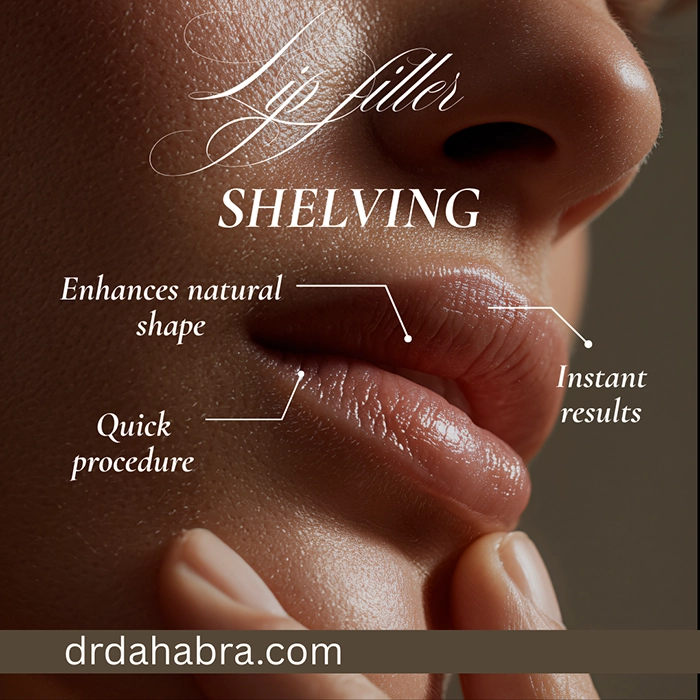How to get clear glowing skin for busy people
The Science Behind Skin Glow: Key Ingredients Explained
Achieving a radiant complexion involves understanding the role of specific ingredients that promote skin health. This article is about skin glow: 7 celebrity-favorite skincare ingredients explained.
Ingredients like retinol, vitamin C, hyaluronic acid, and alpha hydroxy acids (AHAs) are renowned for accelerating cell turnover, supporting collagen production, hydrating the skin, and gently exfoliating to reveal brighter, healthier-looking skin.
Retinol, a vitamin A derivative, promotes exfoliation and reveals fresh, piel resplandeciente. Vitamin C is an antioxidant that nourishes collagen and reduces the appearance of uneven skin tono.
Hyaluronic Acid draws moisture to the skin, keeping it hydrated, plump, and elastic. Like glycolic Acid, AHAs gently remove dead skin cells, revealing a brighter, smoother complexion.
Incorporating these ingredients into your skincare routine can significantly improve skin texture, tone, and overall appearance, creating a radiant glow.
Índice
1. Vitamin C IV Therapy: Brightening Skin from Within
2. Retinol: Accelerating Cell Turnover for Fresh, Glowing Skin
3. Glycolic Acid: Exfoliating Dead Skin Cells for a Brighter Complexion
4. Niacinamide: Improving Skin Texture, Tone, and Reducing Pores
5. Hyaluronic Acid: Drawing Moisture for Hydrated, Plump, and Elastic Skin
6. Peptides: Supporting Collagen Production and Enhancing Skin Elasticity
7. Ceramides: Strengthening Skin Barrier for Improved Hydration
8. Natural Skin Glow Tips: Lifestyle Habits for a Healthy Complexion
9. Combining Ingredients: Maximizing Benefits for Overnight Glow
10. Understanding Skin Tone and Texture: Achieving a Radiant Glow
11. The Role of Collagen in Skin Elasticity and Appearance
12. Hydration and Skin Health: Importance of Moisture for Glowing Skin
13. IV Vitamin Therapy: Benefits Beyond Skin Glow
14. Choosing the Best Ingredients for Your Skin Type
15. Preguntas más frecuentes (FAQ)
16. Conclusión
17. Referencias
1. Vitamin C IV Therapy: Brightening Skin from Within
Vitamin C Terapia intravenosa delivers high doses of this potent antioxidant directly into the bloodstream, bypassing the digestive system for maximum absorption.
This method supports collagen production, essential for maintaining skin elasticity and firmness. Additionally, vitamin C helps reduce the appearance of uneven skin tone and protects against free radical damage, leading to a brighter complexion.
The benefits of vitamin C IV therapy extend beyond salud de la piel. It boosts the immune system, reduces inflammation, and enhances overall well-being.
For those seeking a more radiant glow, this therapy can be a valuable addition to their skincare regimen.
Consulting with a profesional sanitario is crucial before starting IV therapy to ensure it’s appropriate for your individual needs and to discuss potential risks and benefits.
2. Retinol: Accelerating Cell Turnover for Fresh, Glowing Skin
Retinol is a powerhouse ingredient that accelerates cell turnover, revealing fresh, piel resplandeciente.
By promoting the shedding of old skin cells and stimulating the production of new ones, retinol helps reduce the appearance of fine lines, wrinkles, and hyperpigmentation.
In addition to its exfoliating properties, retinol supports collagen production, improving skin elasticity and firmness. Regular use can lead to a smoother, more youthful complexion.
However, it’s essential to introduce retinol gradually into your skincare routine to minimize potential irritation.
Using retinol at night and applying sunscreen during the day is recommended, as retinol can increase skin sensitivity to sunlight. Consulting with a dermatologist can help determine the appropriate concentration and formulation for your skin type.
3. Glycolic Acid: Exfoliating Dead Skin Cells for a Brighter Complexion
Glycolic Acid, an alpha hydroxy acid (AHA), is renowned for its exfoliating properties. It works by breaking down the bonds between dead skin cells, allowing them to be sloughed off and revealing a brighter, smoother complexion underneath.
Regularly using glycolic Acid can improve skin texture, reduce the appearance of pores, and diminish fine lines and hyperpigmentation. It also promotes collagen production, enhancing skin elasticity and firmness.
Incorporating glycolic Acid into your skincare routine should be done gradually, starting with lower concentrations to assess skin tolerance. As with retinol, sunscreen is crucial, as glycolic Acid can increase sun sensitivity.
4. Niacinamide: Improving Skin Texture, Tone and Reducing Pores
Niacinamide, or vitamin B3, is a versatile ingredient with multiple skin benefits.
It helps improve skin texture and tone by reducing the appearance of uneven pigmentation and redness. Niacinamide also minimizes the appearance of pores, contributing to a more radiant glow.
This ingredient strengthens the skin’s barrier function, enhancing its ability to retain moisture and protect against environmental stressors. It also regulates oil production, benefiting those with oily or acne-prone skin.
Niacinamide is generally well-tolerated and can be incorporated into morning and evening skincare routines. It’s compatible with other active ingredients, making it a valuable addition to a comprehensive skincare regimen.
5. Hyaluronic Acid: Drawing Moisture for Hydrated, Plump, and Elastic Skin
Hyaluronic Acid is a naturally occurring substance in the skin that can hold up to 1,000 times its weight in water. As a humectant, it draws moisture to the skin, keeping it hydrated, plump, and elastic.
Incorporating hyaluronic Acid into your skincare routine can significantly improve skin hydration, leading to a smoother, more supple complexion. It also helps reduce the appearance of fine lines and wrinkles, enhancing the skin’s overall appearance.
For optimal results, apply hyaluronic Acid to damp skin and follow with a moisturizer to lock in hydration. This technique ensures the skin remains hydrated throughout the day, contributing to a healthy, glowing complexion.
6. Peptides: Supporting Collagen Production and Enhancing Skin Elasticity
Peptides are short chains of amino acids that build blocks for proteins like collagen and elastin, essential for maintaining skin structure and elasticity. By signaling the skin to produce more collagen, peptides help improve skin firmness and reduce the appearance of fine lines and wrinkles.
Incorporating peptide-rich products into your skincare routine can enhance the skin’s overall appearance, making it look more youthful and radiant. Peptides also support the skin’s barrier function, improving hydration and resilience against environmental stressors.
Peptides are generally well-tolerated and can be used with other active ingredients, making them a versatile addition to any skincare regimen to achieve a radiant glow.
7. Ceramides: Strengthening Skin Barrier for Improved Hydration
Ceramides are lipid molecules naturally found in the skin and are crucial in maintaining the skin’s barrier function.
They help lock in moisture, keeping the skin hydrated, plump, and elastic. A strong skin barrier also protects against environmental aggressors and prevents water loss.
Incorporating ceramide-rich products into your skincare routine can improve skin hydration and promote a healthy, glowing complexion. They are particularly beneficial for individuals with dry or sensitive skin, as they help soothe and repair the skin barrier.
Ceramides can be found in various skincare products, including moisturizers, serums, and cleansers, making it easy to include them in your daily regimen for enhanced skin health.
8. Natural Skin Glow Tips: Lifestyle Habits for a Healthy Complexion
Achieving a radiant glow isn’t solely dependent on skincare products; lifestyle habits play a significant role. Drinking plenty of water keeps the piel hydrated from within, while a balanced diet rich in fruits and vegetables provides essential nutrients for skin health.
Properly moisturizing after washing your cara helps lock in hydration, and wearing sunscreen daily protects against UV damage that can lead to premature aging. Avoiding smoking and managing stress levels also contribute to a healthier complexion.
Incorporating natural remedies like aloe vera and coconut oil can soothe and nourish the skin, enhancing its natural glow. Regular exfoliation and finding a cleansing routine for your skin type are also key steps in maintaining a luminous complexion.
9. Combining Ingredients: Maximizing Benefits for Overnight Glow
Strategically combining skincare ingredients can enhance their effectiveness and lead to visible improvements in skin radiance.
For instance, pairing retinol with niacinamide can reduce irritation while improving skin tone and texture. Similarly, combining hyaluronic Acid with peptides helps draw moisture into the skin and lock it in, promoting hydrated skin and improving elasticity.
When used correctly, these ingredient combinations can deliver a glowing complexion overnight. AHAs like glycolic Acid can be applied before serums containing hydrating or reparative ingredients, allowing for better absorption.
This sequence helps to gently exfoliate, remove dead skin cells, and then infuse the skin with moisture and nutrients—resulting in a more radiant glow by morning.
However, it’s crucial to be cautious when layering active ingredients to avoid irritation. Not all ingredients mix well—for example, retinol and strong acids may cause dryness or redness if used together.
Always introduce new products gradually and consider consulting a dermatologist for a personalized skincare plan.
10. Understanding Skin Tone and Texture: Achieving a Radiant Glow
Glowing skin isn’t just about brightness; it also involves smooth texture and even tone.
Uneven skin tone can be caused by daño solar, post-inflammatory hyperpigmentation, or hormonal changes. Ingredients like vitamin C and niacinamide can help reduce the appearance of uneven skin tone and promote a more consistent complexion.
Texture issues, such as roughness or bumpy skin, often stem from a buildup of dead skin cells or lack of hydration. Regular exfoliation with glycolic Acid or gentle physical scrubs can improve skin texture by removing surface debris.
Hydrators like hyaluronic Acid and ceramides support smoother, elastic skin by reinforcing the moisture barrier.
Over time, a skincare routine that addresses tone and texture can significantly enhance the appearance of skin. Incorporating targeted ingredients helps to improve skin tone, smooth out irregularities, and support a more uniform, healthy-looking complexion that naturally reflects light better—adding to that sought-after glow.
11. The Role of Collagen in Skin Elasticity and Appearance
Collagen is the structural protein that keeps our skin firm, elastic, and youthful.
As we age, collagen production naturally declines, leading to sagging, wrinkles, and dullness. Supporting collagen production is essential to maintain a vibrant, glowing complexion.
Ingredients like peptides, retinol, and vitamin C estimular el colágeno synthesis. Vitamin C, in particular, supports collagen production and protects existing collagen from damage caused by free radicals.
This dual action helps improve skin elasticity and enhance the appearance of the skin.
To further boost collagen levels, consider incorporating treatments such as microneedling, LED light therapy, or collagen supplements alongside topical ingredients.
Strengthening the skin’s collagen matrix results in firmer, plump skin and a healthy, glowing complexion that feels as good as it looks.
12. Hydration and Skin Health: Importance of Moisture for Glowing Skin
Hydration is a cornerstone of glowing skin.
When the skin is properly hydrated, it appears more plump, elastic, and luminous. Dehydrated skin, however, can look dull, flaky, and tired, even using all the right products.
Hyaluronic Acid plays a vital role in drawing moisture to the skin, while ceramides help to lock that moisture in. These two ingredients work synergistically to maintain a healthy skin barrier, prevent water loss, and improve skin texture. This leads to a hydrated feel and visibly smoother and more radiant skin.
Drinking plenty of water, using a humidifier, and avoiding overly drying skincare products contribute to hydrated skin. For a full moisture boost, layer hydrating serums under emollient-rich moisturizers.
With consistent care, your skin will thank you by reflecting light naturally for that fresh, dewy finish.
13. IV Vitamin Therapy: Benefits Beyond Skin Glow
IV vitamin therapy isn’t just a trend—it’s a wellness treatment gaining traction for its skin and health benefits. This therapy involves delivering vitamins, minerals, and antioxidants directly into the bloodstream, ensuring 100% absorption compared to oral supplements.
Vitamin C IV therapy, in particular, stands out for its skin-brightening effects. It nourishes the skin from within, reduces the appearance of uneven skin tone, and supports collagen production.
Over time, this leads to improved skin elasticity, fewer wrinkles, and a visibly healthier complexion.
Más allá de estética benefits, IV vitamin therapy can enhance energy levels, strengthen the immune system, and promote overall wellness. Many celebrities and health enthusiasts use it as a routine pick-me-up to maintain glowing skin and general vitality.
Always consult a licensed professional to tailor the treatment to your needs safely.
14. Choosing the Best Ingredients for Your Skin Type
Not all skin types react the same to skincare ingredients, so selecting the right ones is key to achieving optimal results.
Niacinamide and glycolic acid can help control oil, reduce pore size, and create a smooth texture for oily or acne-prone skin. Dry skin types benefit more from hydrating ingredients like hyaluronic Acid and ceramides.
Sensitive skin requires gentle care—look for fragrance-free products and calming ingredients like peptides and niacinamide. Those with combination skin might need a blend of hydrating and exfoliating components applied to specific face areas for balance.
Understanding your skin type helps you avoid irritation and get better results from your routine.
Start with patch testing new products and introduce them gradually to your regimen. Personalizing your skincare choices with the best ingredients for brillo de la piel ensures a healthier, brighter, and more radiant glow that suits your unique complexion.
15. Frequently Asked Questions (FAQs) About Skin Glow: 7 Celebrity-Favorite Skincare Ingredients Explained
Q1. What is skin glow?
Respuesta concisa: Skin glow is a healthy, radiant, luminous complexion.
Respuesta detallada: Glowing skin typically means your skin looks well-hydrated, smooth, and vibrant with a natural brightness. It’s a sign of good skin health, often resulting from proper hydration, balanced skin tone, and effective skincare practices that support elasticity, texture, and cell renewal.
Q2. How will I make my skin glow?
Respuesta concisa: Use effective skincare ingredients and adopt healthy lifestyle habits.
Respuesta detallada: To achieve glowing skin, integrate ingredients like vitamin C, retinol, hyaluronic Acid, and glycolic Acid into your routine. Drink plenty of water, get enough sleep, moisturize, wear sunscreen daily, and eat a balanced diet to maintain skin health from within.
Q3. What causes your skin to glow?
Respuesta concisa: Healthy skin glow is caused by hydration, good circulation, and cell renewal.
Respuesta detallada: When your skin is well-moisturized, properly exfoliated, and supported with antioxidants and collagen boosters, it reflects light better and appears more radiant. Lifestyle factors like sleep, stress, and nutrition also play a significant role in boosting skin glow.
Q4. What drink makes your skin glow?
Respuesta concisa: Water, green tea, and antioxidant-rich juices help your skin glow.
Respuesta detallada: Hydrating drinks such as water, green tea, lemon water, and beetroot juice improve circulation and flush out toxins. These drinks support your body’s ability to maintain hydrated skin, improve elasticity, and achieve a natural, healthy, glowing complexion.
Q5. What ingredients make your skin glow?
Respuesta concisa: Vitamin C, retinol, hyaluronic Acid, and glycolic Acid are top glow-boosters.
Respuesta detallada: These ingredients improve skin tone, support collagen production, accelerate cell turnover, and remove dead skin cells—resulting in a brighter, smoother complexion. Peptides and ceramides also enhance skin appearance and elasticity.
Q6. What is the main ingredient for glowing skin?
Respuesta concisa: Vitamin C is the top ingredient for skin glow.
Respuesta detallada: Vitamin C supports collagen synthesis, reduces pigmentation, and protects against environmental damage. It enhances the skin’s radiance and tone, making it a staple in any glow-enhancing skincare regimen.
Q7. How can I make my skin glow naturally?
Respuesta concisa: Stay hydrated, eat clean, exfoliate, and use natural oils.
Respuesta detallada: Natural ways to glow include drinking water, eating fruits and veggies, using aloe vera or coconut oil, and following a consistent skincare routine. Regular exfoliation with mild ingredients like yogurt or oats also helps reveal brighter skin.
Q8. Which ingredients brighten skin?
Respuesta concisa: Vitamin C, niacinamide, and glycolic Acid are brightening agents.
Respuesta detallada: These ingredients reduce pigmentation and dullness by improving skin tone, encouraging cell turnover, and inhibiting melanin production. Their regular use enhances overall brightness and texture.
Q9. What are the best home remedies for glowing skin?
Respuesta concisa: Aloe vera, turmeric masks, and honey scrubs boost glow naturally.
Respuesta detallada: You can mix yogurt, turmeric, honey, and lemon to create nourishing masks. Aloe vera soothes and hydrates, while coconut oil protects the skin barrier, contributing to brighter, more elastic skin.
Q10. What is the fastest way to get glowing skin?
Respuesta concisa: Combine exfoliation, hydration, and vitamin C serum.
Respuesta detallada: For quick results, exfoliate to remove dead skin cells, apply a vitamin C serum, and seal in moisture with a rich moisturizer. This combo improves skin texture, reduces dullness, and gives a noticeable glow within hours.
Q11. How to get Korean glass skin?
Respuesta concisa: Use multiple hydration layers and exfoliate gently.
Respuesta detallada: Korean glass skin focuses on flawless, luminous skin. Double cleansing, exfoliating regularly, layering hydrating toners, and sealing in moisture with serums and creams are essential steps.
Use ingredients like hyaluronic Acid and niacinamide for the effect.
Q12. How to get glowy skin on the body?
Respuesta concisa: Exfoliate, moisturize daily, and drink water.
Respuesta detallada: Use body scrubs or glycolic acid-based products to remove dead skin. Follow with a thick moisturizer containing ceramides or hyaluronic Acid.
Stay hydrated and avoid long, hot showers that dry out your skin.
Q13. What is vitamin C good for?
Respuesta concisa: Vitamin C brightens, firms, and protects the skin.
Respuesta detallada: As a potent antioxidant, vitamin C reduces dark spots, supports collagen production, and fights oxidative stress. It’s ideal for improving skin tone and enhancing radiance, making it a go-to for a healthy, glowing complexion.
Q14. What is vitamin IV therapy?
Respuesta concisa: It’s a method of delivering vitamins directly into the bloodstream.
Respuesta detallada: Vitamin IV therapy bypasses digestion to provide fast-acting nutrients like vitamin C, B12, and others. It boosts energy, enhances immunity, and supports skin glow from the inside, offering visible skin improvements with consistent treatments.
Q15. What are the benefits of vitamin IV therapy?
Respuesta concisa: It improves hydration, boosts collagen, and enhances skin glow.
Respuesta detallada: IV vitamin therapy allows your body to absorb nutrients more efficiently, which can help hydrate the skin, reduce inflammation, support collagen production, and result in a more radiant complexion. It also contributes to overall wellness and energy levels.
16. Conclusion: Skin Glow: 7 Celebrity-Favorite Skincare Ingredients Explained
Achieving a radiant, glowing complexion is more accessible than ever, thanks to the integration of powerful, celebrity-endorsed skincare ingredients. Each component is vital in enhancing skin health and appearance, from the deep hydration of hyaluronic Acid to the collagen-boosting effects of peptides.
Incorporating these ingredients into your daily skincare routine can significantly improve skin texture, tone, and overall vitality. Vitamin C IV therapy, for instance, offers an internal approach to skin brightening and collagen support.
At the same time, topical applications of retinol and glycolic Acid promote cell turnover and exfoliation, revealing fresher, more youthful skin. Niacinamide and ceramides further strengthen the skin barrier and maintain optimal hydration levels.
Remember, consistency is key. Regularly using these ingredients and healthy lifestyle choices like adequate hydration, balanced nutrition, and sun protection can lead to a more radiant and youthful complexion.
Consult a skincare professional to tailor a regimen that suits your needs and skin type, ensuring the best possible results.
We have covered everything about skin glow: 7 celebrity-favorite skincare ingredients explained.
Everything You Need to Know About The Skin Glow and Celebrities’ Favorite Skincare Ingredients With Dr. Dahabra
Experience the guía definitiva to get clear, glowing skin for busy people with Dr. Dahabra. ¿Por qué esperar para liberar su belleza?
Llámenos ahora al (954) 595-2607 o reserve online. Su viaje comienza con sólo un clic o una llamada.
Abraza la belleza, abraza la innovación - Embrace You.
17. Referencias
Beverly Hills Wellness Center & Med Spa, Florida
The Roles of Vitamin C in Skin Health
Fuente: University of Otago, Christchurch
Resumen: This study explores how vitamin C contributes to skin health by supporting collagen synthesis, acting as an antioxidant, and improving skin barrier function.
The Effect of Niacinamide on Reducing Cutaneous Pigmentation and Suppression of Melanosome Transfer
Fuente: Procter & Gamble
Resumen: This research demonstrates niacinamide’s ability to reduce skin pigmentation by inhibiting melanosome transfer, leading to a more even skin tone.
Fuente: L’Oréal Research and Innovation
Resumen: The study finds that kiwi-derived yeast extract enhances hyaluronic acid levels in the skin, improving hydration and facial resplandor.
Skin Filling and Firming Activity of a Hyaluronic Acid Inducing Synthetic Tripeptide
Fuente: BASF Beauty Care Solutions
Resumen: This research highlights synthetic tripeptide’s role in stimulating hyaluronic acid production and improving skin firmness and volume.
Fuente: Martin Luther University Halle-Wittenberg
Resumen: The study compares ceramide profiles in various skin conditions, emphasizing ceramides’ importance in maintaining skin barrier integrity.
Fuente: Dongguk University
Resumen: This paper discusses vitamin C’s role in enhancing dermal collagen production and its potential in anti-aging skincare formulations.
Fuente: Seoul National University
Resumen: The research investigates using dissolving microneedles containing high molecular weight hyaluronic Acid to enhance skin elasticity and reduce wrinkles.
Glycolic Acid Adjusted to pH 4 Stimulates Collagen Production and Epidermal Thickness
Fuente: L’Oréal Research and Innovation
Resumen: This study demonstrates that glycolic Acid at a specific pH can estimular el colágeno production, improving skin thickness and texture.
Fuente: Charité – Universitätsmedizin Berlin
Resumen: The study evaluates the effectiveness of ceramide-dominant formulations in restoring skin barrier function in atopic dermatitis patients.
Fuente: Seoul National University
Resumen: This research explores the use of adenosine-loaded microneedle patches to enhance various aspects of skin health, including elasticity and hydration.




